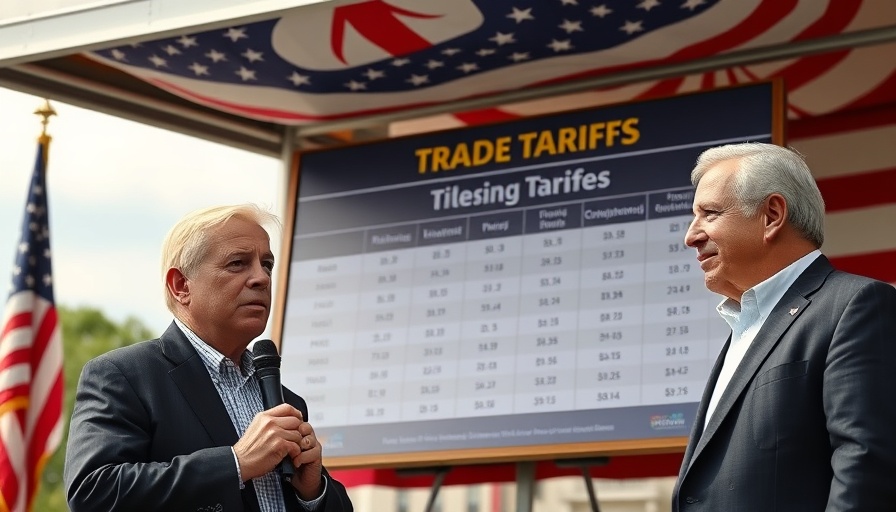
Understanding the Economic Landscape: Japan's Currency Talks with the US
As Japan prepares for crucial trade negotiations with the United States, one of the primary focal points will be the yen's fluctuating value and the actions of the Bank of Japan (BOJ). This dialogue comes at a critical moment where both nations are aiming to strengthen their economic ties amidst global uncertainties and changing market dynamics.
Current Economic Context: The Role of the Yen
The Japanese yen has faced significant pressures due to inflation and shifting monetary policies both domestically and internationally. Economic analysts are closely watching how the yen's value impacts trade balances and inflation rates within Japan. Current trends indicate an increased yen's depreciation against the US dollar raises concerns about Japan's export competitiveness and cost of imports.
Potential Strategies for Strengthening the Yen
In light of these negotiations, various strategies could be employed to stabilize the yen. Experts suggest that Japan may consider interventions that involve coordinated efforts with the BOJ to influence interest rates or currency values in response to market fluctuations. The upcoming discussions may provide room for policies that facilitate safer investment environments, potentially boosting foreign investments.
Comparing Japan and US Trade Policies
As negotiations unfold, a spotlight is also placed on the differing trade policies between Japan and the United States. With the US focusing on protecting its domestic industries, Japan could face challenges negotiating terms that are mutually beneficial. Understanding these dynamics will be crucial for stakeholders who regularly monitor stock market news and investment strategies across both countries.
Global Implications and Future Predictions
As Japan engages in talks to solidify its economic relations, the implications of these discussions extend far beyond its shores. Changes in Japan's currency policy can ripple through global markets, affecting investments in various sectors including technology and commodities. Investors should remain vigilant and adapt their strategies to fluctuating conditions, particularly in relation to emerging markets and international investing opportunities.
Preparing for Investment Decisions
Given the potential outcomes from this upcoming dialogue, savvy investors should leverage current market conditions to their advantage. Keeping abreast of stock market trends and economic indicators will empower them to make informed decisions regarding everything from ETF investing to portfolio diversification strategies.
Conclusion: The Stakes Ahead
The upcoming Japan-US negotiations are more than just discussions on currency value; they represent a significant pivot in global trade relationships. Analysts and investors alike should prepare for possible shifts that might necessitate adjustments in their investment approaches—whether that involves engaging with alternative investments, monitoring bond market trends, or recalibrating risk management strategies.
Staying informed about the ongoing developments in these trade talks is crucial, as they will undoubtedly have long-lasting impacts on both local and global economic landscapes. Investors and businesses should remain adaptable, ready to seize new opportunities that could arise from these negotiations.
 Add Row
Add Row  Add
Add 



Write A Comment